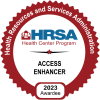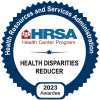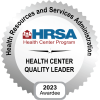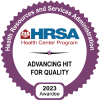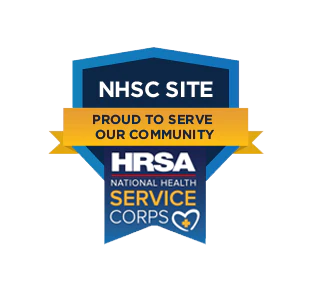The Beloit Area Community Health Center offers drive-thru services for COVID testing. Call 608-361-0311 to make an appointment.
Do CHS medical providers recommend we get the vaccine?
Yes! CHS medical providers are excited for the vaccine and recommend all patients who are able get vaccinated!
Check out videos from our medical providers on social media explaining their reasons:
Is the vaccine safe?
Yes, the vaccine is safe. The vaccine was tested in trials with thousands of Americans and no serious safety concerns were reported.
The FDA takes these approvals very seriously. In addition, the science to develop this vaccine is NOT new. Scientists have been doing research on this type of vaccine for many years with previous outbreaks caused by related viruses. This research gave us a big head start. Safety is the top priority!
The CDC has set up a specific program (V-Safe) to monitor any concerns that may arise after receiving the vaccine. You can register online. Someone from the CDC will call to check on you at intervals after getting the vaccine. Your personal information will not be stored or shared.
Can I get COVID from the vaccine?
No, you cannot. It does NOT contain the live virus that causes COVID-19. The vaccine gives our body practice by recognizing the virus and safely developing an immune response against it.
Here is information from the CDC regarding the various vaccines being used and developed.
Are there side effects from the vaccine?
About 20% of people do experience side effects, such as fever and nausea, for one to two days. This is completely normal and means that both your immune system and the vaccine are doing their job. All results from the trials show a quick recovery from symptoms and no serious side effects. If your symptoms worsen, contact your medical provider.
If you have had prior reactions to any vaccine, please consult with your doctor prior to getting the COVID-19 vaccine.
Is the vaccine effective?
Yes! Trials showed the Pfizer vaccine was 95% effective and the Moderna vaccine was 94.1% effective. Being protected by the vaccine greatly outweighs the risk of getting COVID.
How many doses do I need?
Right now, the vaccine requires two doses separated by three to four weeks followed by the bivalent booster 2 months after the last dose given, even if you have had a previous booster. The first and second dose does not have to be from the same brand, Pfizer and Moderna vaccinations are interchangeable. It will take your body up to one month to develop the protection it needs. It is recommended to get a bivalent booster to be up to date.
How long does the immunity last?
At this point, we do not yet know how long immunity will last. This is something important that experts are currently studying. The CDC will keep the public informed as new evidence becomes available.
Do I still need to wear a mask and social distance?
YES, we need to use all the tools in our toolbox to keep ourselves, our loved ones, and our communities safe. The vaccine is just one tool. CONTINUE wearing a mask, washing your hands, and staying at least 6 feet away from others.
The primary reason for this is because while the vaccine will prevent symptoms from developing, it is not yet known whether or not it can prevent you from spreading the disease. This is an additional area that the CDC is currently studying.
Who should get vaccinated?
Both Pfizer and Moderna have been approved for ages 6 months or higher for both the primary series and/or bivalent booster. Everyone should talk to their doctor before getting vaccinated.
Who should not get vaccinated?
Unfortunately, right now some people should NOT get the vaccine:
- People with a severe allergy to a vaccine ingredient or to any vaccine.
- People younger than 6 months.
- People who have COVID-19 symptoms or are isolated because of an exposure RIGHT NOW. You can get vaccinated after you have recovered or are out of isolation.
Can I get the vaccine if I’m pregnant?
COVID-19 vaccination is recommended for all people aged 6 months and older. This includes people who are pregnant, breastfeeding, trying to get pregnant now, or those who might become pregnant in the future. This also includes infants ages 6 months and older born to people who were vaccinated or had a COVID-19 infection before or during pregnancy.
- If you are pregnant or were recently pregnant, you are more likely to get very sick from COVID-19 compared to people who are not pregnant. Additionally, if you have COVID-19 during pregnancy, you are at increased risk of complications that can affect your pregnancy and developing baby.
- Getting a COVID-19 vaccine can help protect you and your baby from serious health problems from COVID-19.
- People who are pregnant should stay up to date with their COVID-19 vaccines, including getting a COVID-19 booster shot when it’s time to get one.
Can I get the vaccine if I have an immune issue or disease?
People who have immune issues or diseases should talk to their doctors about getting the vaccine.
People who are or who become moderately or severely immunocompromised should follow the COVID-19 vaccination schedule according to their age and immune status at the time of eligibility for that dose. For example, people who become moderately or severely immunocompromised after completing a 2-dose mRNA primary series do not need additional primary doses; however, they should follow the schedule for people who are moderately or severely immunocompromised for the booster dose.
I’ve already had COVID, do I need to get the vaccine?
We recommend that all individuals who are able get the vaccine, even if you have already been diagnosed with COVID. There is no way to know whether or not you have enough immunity from your past exposure, and it is best to protect yourself with the vaccine.
How much will it cost to get vaccinated?
The federal government will cover the cost of the vaccine. It is possible that some places will charge an office or visit fee. We recommend asking before you get a vaccine.


